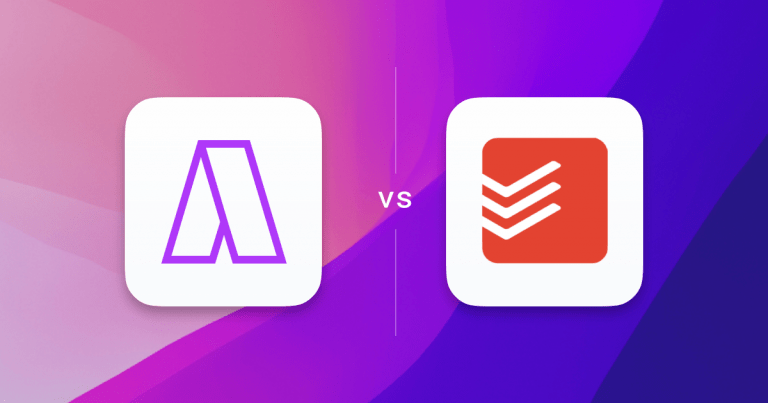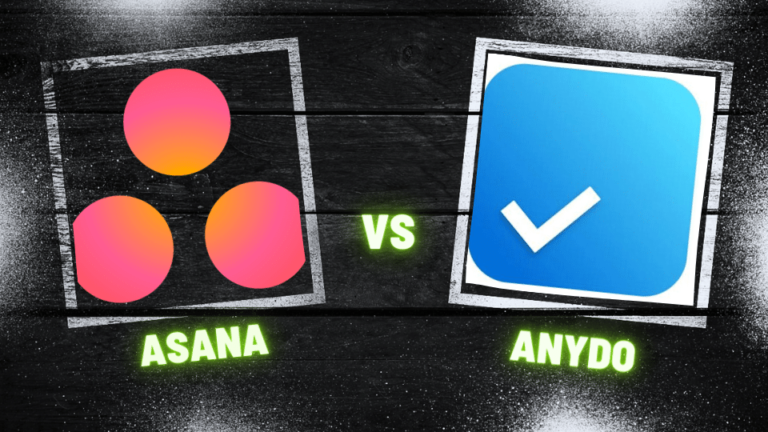What is Asana
Asana stands out as a versatile project management tool, ideal for various team sizes. Its user-friendly interface, coupled with diverse features like task management, project visualization (including Kanban and Gantt charts), and robust team collaboration tools, makes it a top choice. Additionally, Asana’s integration capabilities with other apps enhance workflow efficiency. Offering a range of pricing plans, including a free version for smaller teams, Asana caters to a broad spectrum of organizational needs. It’s particularly recommended for its ease of use, extensive integrations, and comprehensive project management features.
Key Features of Asana
- Task Management: Asana excels in task management, allowing users to create, assign, and track tasks efficiently. This feature ensures that team members are always aware of their responsibilities and deadlines, promoting productivity and accountability.
- Project Visualization: With options like Kanban boards and Gantt charts, Asana offers versatile visualization tools. These features aid in understanding the project flow and milestones, making it easier to manage timelines and resources.
- Team Collaboration: Asana fosters seamless team collaboration. It allows for easy communication within tasks, sharing of files, and updating progress, thus keeping everyone on the same page and enhancing teamwork.
- Integration Capabilities: The platform integrates with a wide range of other applications and tools, streamlining workflows and automating processes. This integration makes it a flexible tool that can adapt to various business ecosystems.
- Customization and Reporting: Asana offers extensive customization options, including custom fields and reporting features. These allow teams to tailor their project management experience and generate insightful reports for better decision-making.
- User-Friendly Interface: The intuitive interface of Asana is designed for ease of use, making it accessible for teams regardless of their technical expertise. This simplicity ensures a smooth onboarding process and enhances overall user experience.
What is Any.do
Any.do is a to-do list app that integrates a calendar and to-do list, ideal for managing tasks and calendar events in one place. It’s user-friendly, designed for checklist management, task organization, and calendar integration. Any.do also experiments with AI features. The app is available on multiple platforms including Web, iOS, Android, Mac, and Windows. It’s recommended for those seeking an easy-to-use tool for task management, and it’s suitable for beginners.
Key Features of Any.do
- Task Management: Any.do excels in organizing tasks. It allows users to create, categorize, and prioritize tasks, making it easy to keep track of what needs to be done. Its intuitive interface simplifies task management, even for complex projects.
- Calendar Integration: The app seamlessly integrates with calendars, providing a unified view of tasks and events. This feature is essential for planning and ensures users don’t miss important deadlines or appointments.
- Cross-Platform Accessibility: Any.do is available on multiple platforms, including iOS, Android, web, and desktop. This makes it highly accessible and ensures that users can manage their tasks and calendars from any device.
- Voice Entry and AI Features: The app supports voice entry, allowing users to add tasks hands-free. Additionally, it is experimenting with AI features to enhance user experience and task management efficiency.
- Customizable Reminders: Users can set up customizable reminders for tasks. This feature helps in ensuring that important tasks are not forgotten and aids in effective time management.
- Collaboration Tools: Any.do includes features for sharing tasks and lists with others, making it a good tool for collaborative projects. This functionality is beneficial for teams and individuals who work in collaborative environments.
Asana vs Any.do: Features
| Features | Asana | Any.do |
|---|---|---|
| Integrations | Google Drive, Slack, Zoho Cliq, Zapier, Jira, Zoom, Toggl Track, Loom, Harvest, Gmail | WhatsApp, Zapier, Gmail, Slack, Siri & Apple Reminders, and Smart Watch |
| Calendar | Yes | Yes |
| Platforms | macOS, iOS, Android, Web, and Windows | macOS, iOS, Android, Web, Windows |
| Task Management | Task creation and assignment, due date setting, progress tracking, project organization, tagging, comments, file attachments, task conversations | Creating tasks, setting due dates, adding reminders, organizing tasks into lists, attaching files, and sharing tasks with others |
| Natural Language Processing | Yes | Yes |
| Time Blocking | No | No |
| Analytics | Yes | No |
| Meeting Scheduler | No | No |
| Time Zones | Yes | Yes |
| Reminders | Yes | Yes |
| Customer Support | Average | Average |
| 1:1 User Onboarding | Asana offers customer success services including tailored training and consultation, which might include onboarding calls for new users, especially in enterprise plans | No |
| Pricing | Asana offers three plans: the free Personal plan for basic needs, the Starter plan at $11.59 for expanded features like timeline view, and the Advanced plan at $25.69 for comprehensive project management tools including time tracking and advanced customization. | Free version for basic task management and a Premium version at $36 per year |
Asana vs Any.do: Pricing
Asana Pricing
Asana offers three main pricing tiers:
(i) Personal: This is a free plan, suitable for small teams or individuals. It includes basic project and task management features and supports collaboration with up to 10 team members. Users have access to unlimited tasks, projects, messages, and file storage.
(ii) Starter: Priced at $11.59 per user per month, this plan builds on the Personal plan. It allows collaboration with up to 500 teammates and introduces additional features like timeline and Gantt chart views, along with the ability to use forms and automation.
(iii) Advanced: At $25.69 per user per month, the Advanced plan includes all features from the lower tiers and adds functionalities such as goals, time tracking, proofing, approvals, and more advanced customization options.
Each tier offers a range of features to accommodate different needs, from individual use to more complex team collaboration and project management requirements.
Any.do Pricing
Any.do offers a free version and two paid versions: Premium and Teams.
(i) The free version allows basic task organization and syncing across devices but lacks third-party app integrations.
(ii) The Premium version, priced at $36 per year, includes features like recurring tasks, location and WhatsApp reminders, task color-tagging, and integration with over 5,000 third-party apps.
(iii) The Teams plan, at $60 per year, adds unlimited boards and team members, collaborative workspace, kanban boards, and advanced admin tools.
A 48-hour money-back guarantee is available for paid plans.
Asana vs Any.do: Reviews
Asana Review
Asana, a popular project management tool, is praised for its intuitive interface and robust feature set, making it an excellent choice for teams of all sizes. Key strengths include versatile project views, effective task and assignment management, and smooth team collaboration. Users benefit from a variety of project views like Kanban Board, Timeline, and Gantt, alongside templates for quick project setup. Asana’s progress tracking and integration with various tools like Google Suite and Microsoft 365 further enhance its utility. However, the tool’s complexity might be overwhelming for beginners, and the cost of the Advanced package may be a concern for smaller teams or individual users.
Any.do Review
Any.do is praised for its intuitive interface and flexibility in managing tasks and to-do lists, making it a popular choice for personal and professional use. Its integration capabilities with other platforms and tools enhance its functionality. However, some users find its features limited compared to more robust project management tools. Additionally, the premium version might be necessary for accessing all features, which could be a consideration for those on a budget.
Which One Should You Pick
Consider Asana if
- You’re Managing Diverse Projects: Asana is suitable for various project types, offering flexibility with multiple view options like Kanban and Gantt charts. However, it might take time to master all the features.
- You Value Integration: Asana’s integration with many tools (like Google Suite, Microsoft 365) enhances its utility. But, be mindful that depending on external apps could complicate workflows.
- You Prioritize Team Collaboration: Asana is strong in team collaboration features, making it easy to track responsibilities and updates. Still, for very small teams or individual use, the platform might offer more than needed.
Consider Any.do if
- You Seek a Simple Task Manager: Any.do is suitable for those who need a straightforward, easy-to-use task management tool without overly complex features.
- Integration with Daily Tools is Key: If integrating with everyday applications like calendars and email is crucial for your workflow, Any.do’s basic integration capabilities can be beneficial.
- You Value Cross-Platform Accessibility: Ideal for users who require a task manager accessible across various devices, although some may find its synchronization less robust compared to more advanced tools.
Best Asana and Any.do Alternatives
- Akiflow: Akiflow is a time management app offering time blocking, task scheduling, and integrations with various tools. It focuses on productivity and organization through a unified task and appointment interface.
Akiflow Price: $19 per month, paid annually - Todoist: Todoist is a task management tool. It enables users to manage tasks, set priorities, and track deadlines across various devices. Its features include task categorization, reminders, and project collaboration, making it suitable for both personal and team productivity.
Todoist Price: Premium at $4 per month, paid annually - Trello: Trello is a visual collaboration tool for planning tasks and projects. With an intuitive interface of boards, lists, and cards, it helps teams organize work and manage projects effectively.
Trello Price: Free Plan for individuals and small teams, Standard Plan at $5 per user/month (billed annually), Premium Plan at $10 per user/month (billed annually), and an Enterprise Plan for larger organizations at $17.50 per user/month (billed annually)

Best Time Blocking Web and Desktop Apps, 2024
Explore the best time blocking apps of 2024! Discover how Akiflow, TickTick, Usemotion, Sunsama, Sortedapp, and TimeHero revolutionize productivity, offering unique features for professionals and students to manage tasks and enhance efficiency.

Improve Focus: 5 ADHD Productivity Tools & Calendar Apps for 2023
Discover five of the best apps and tools for those with ADHD, from note-taking apps to time-blocking platforms. Get ready to stay organised, motivated and on track with Akiflow’s essential guide.

The Top 3 Todoist Alternatives (In-Depth Review)
Over 25 million people now use Todoist to stay on track and plan their day. It has expanded rapidly and is now a widely used task manager with seamless integrations into other task and calendar managers like Akiflow. While Todoist is hugely popular among its wide user base, there are now a variety of Todoist […]

